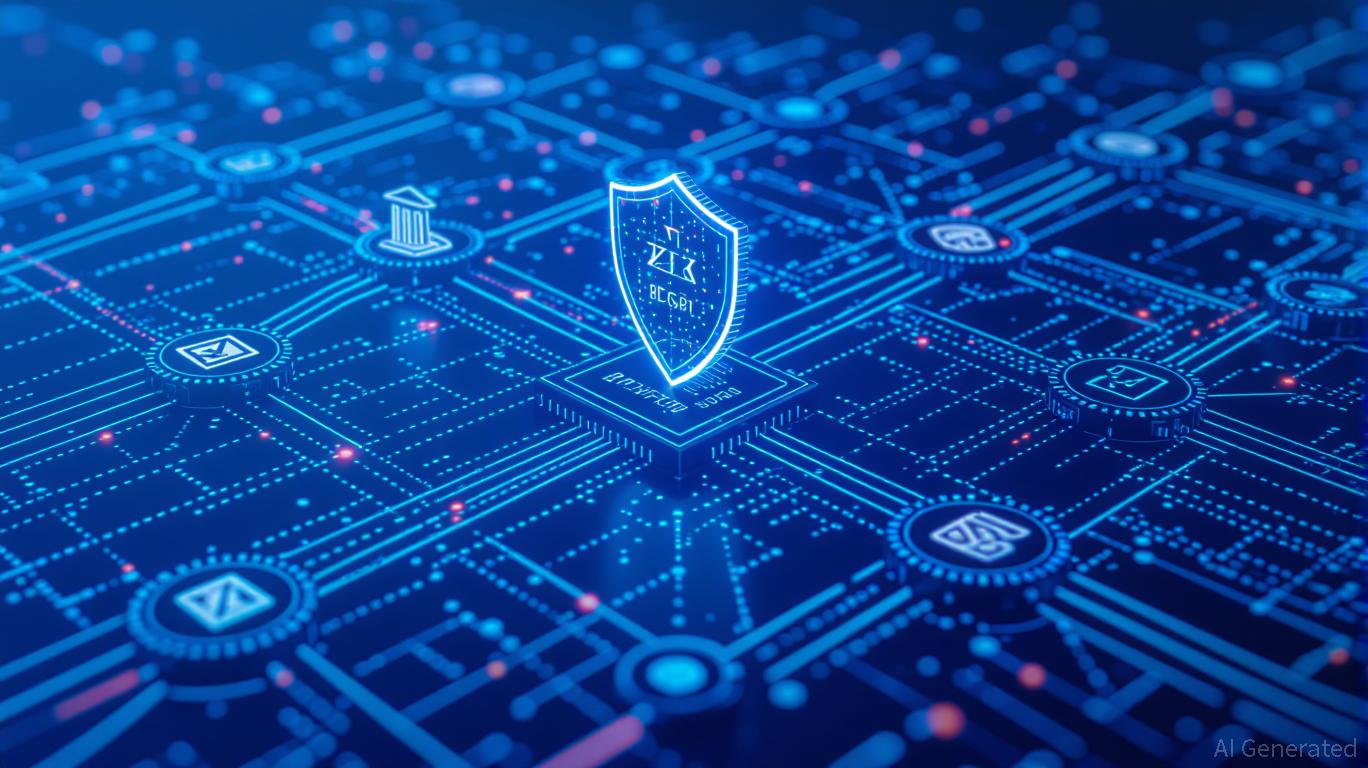Vitalik Buterin's Perspective on ZK: Driving Institutional Embrace in DeFi and Privacy-Focused Assets
- Vitalik Buterin's ZK advocacy reshapes blockchain infrastructure for DeFi and privacy-centric assets. - GKR protocol breakthroughs enable 43,000 TPS with Deutsche Bank , Sony adopting ZK-based hybrid compliance models. - Shielded CSV protocol combines ZK-SNARKs with regulatory compliance to address post-Tornado Cash scrutiny. - 2025 regulatory shifts and 70% gas fee reductions position ZK networks as strategic infrastructure for institutional crypto adoption.
Technical Breakthroughs: Where Scalability Meets Security
Buterin’s advancements with the GKR protocol have dramatically improved ZK verification,
The efficiency of the GKR protocol has also paved the way for quantum-resistant blockchain designs,
Institutional Adoption: Turning Compliance into an Edge
The uptake of ZK technology among institutions is gaining momentum, fueled by the challenge of balancing privacy with regulatory demands. Deutsche Bank’s collaboration with ZKsync is a prime example. The bank is
Likewise, Sony and Citibank have
One notable application is the “Shielded CSV” protocol,

Regulatory Clarity: Opportunity and Challenge
Changes in regulation have been instrumental in the rise of ZK adoption.
The passage of the U.S. GENIUS and CLARITY Acts in 2025 has further strengthened institutional trust, with crypto investments expected to grow as ZK networks prove both cost-effective and compliant
Future Implications: ZK as the Backbone of Blockchain
The long-term effects of ZK integration are significant. By 2025, ZK layer 2 solutions like Lighter and ZKsync are reaching 24,192 TPS and 15,000 TPS, respectively, with ZK-rollups managing 83% of enterprise smart contracts
For investors, projects built on ZK technology are set to lead the next wave of blockchain progress. Protocols that blend technical strength with governance models that reduce risk—like Shielded CSV and ZKsync—are poised to draw ongoing institutional investment. Meanwhile, privacy-oriented assets that use ZK proofs for transparent compliance (such as tokenized securities) are likely to see broader acceptance as international standards develop
Conclusion
Vitalik Buterin’s championing of ZK technology has sparked a new era for blockchain’s appeal to institutions. By simultaneously solving issues of scalability, privacy, and regulatory compliance, ZK proofs are emerging as the cornerstone of future financial systems. As major players like Deutsche Bank and Sony adopt these innovations, ZK-powered DeFi and privacy-first assets are set to reshape the cryptocurrency landscape. For investors, the message is unmistakable: ZK technology has moved from speculation to strategy.
Disclaimer: The content of this article solely reflects the author's opinion and does not represent the platform in any capacity. This article is not intended to serve as a reference for making investment decisions.
You may also like
How large a portion of the AI data center surge will rely on renewable energy sources?
Amazon satellite network receives a new name — and no longer emphasizes its low-cost promise
TechCrunch Mobility: The robotaxi growth that truly counts

Bitcoin News Update: Japan Strives to Foster Crypto Innovation While Enhancing Investor Safeguards Amid Regulatory Reforms
- Japan will reclassify cryptocurrencies as financial products under FIEA, enhancing investor protections and aligning with traditional securities regulations. - FSA proposes 20% capital gains tax, strict insider trading rules, and mandatory disclosures for 105 tokens to mitigate risks and ensure transparency. - Exchanges must provide detailed issuer and blockchain data, while banks may soon hold Bitcoin , reflecting Asia's push for tokenized finance infrastructure. - Regulatory challenges include complian
